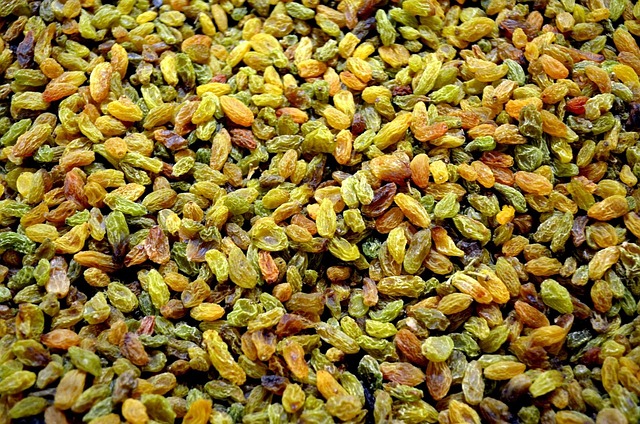The seasons bring a bounty of produce, but few fruits evoke the same sense of summer nostalgia and instant refreshment as the watermelon. Its bright green rind and juicy, ruby interior have made it a staple at picnics, beach parties, and backyard barbecues for generations. Yet beyond the nostalgic aroma, watermelon offers a surprisingly rich profile of nutrients that can enhance everyday health and fit seamlessly into a balanced diet. In this article we explore how the humble watermelon can revitalize your lifestyle, support your well‑being, and become a delicious part of your daily nutrition plan.
The Nutritional Powerhouse Behind the Sweet Slice
A typical 100‑gram serving of watermelon provides a modest caloric intake—just about 30 calories—making it an ideal low‑energy snack. Despite its lightness, the fruit packs a wide array of vitamins, minerals, and antioxidants that benefit the body in many ways. Here’s a concise breakdown of the key nutrients found in watermelon:
- Vitamin C – Essential for immune support, collagen formation, and antioxidant activity.
- Vitamin A (as beta‑carotene) – Supports vision, skin health, and immune function.
- Potassium – Helps regulate blood pressure and fluid balance.
- Magnesium – Important for muscle function, energy production, and bone health.
- Lycopene – A powerful antioxidant that gives watermelon its signature red color and offers protective benefits for heart and prostate health.
- Copper and manganese – Trace minerals that play roles in enzyme systems and connective tissue integrity.
In addition to these macro‑ and micronutrients, watermelon contains a substantial amount of water—over 90%—which helps maintain hydration. It also offers a small quantity of dietary fiber (about 0.4 grams per 100 grams), which supports digestive regularity without adding bulk to the diet. The sugar profile is primarily natural glucose and fructose, keeping it a healthier choice compared to processed sugary snacks.
Health Benefits That Go Beyond the Sweet Taste
The combination of hydration, antioxidants, and essential vitamins means watermelon can have tangible health advantages. Below are some of the most notable benefits, each backed by scientific research.
- Heart Health – Lycopene and potassium work together to reduce arterial stiffness and lower blood pressure. Regular consumption of watermelon is associated with improved cardiovascular markers in some studies.
- Anti‑Inflammatory Effects – Watermelon’s natural flavonoids and vitamin C help reduce oxidative stress, which is linked to chronic inflammation and related diseases.
- Muscle Recovery – The potassium content aids in muscle contraction and reduces cramping. Additionally, the hydration component helps replenish fluids lost during exercise.
- Digestive Comfort – While not high in fiber, the high water content and mild laxative effect can ease constipation and promote regularity.
- Eye Health – Beta‑carotene and vitamin A support vision and help prevent age‑related macular degeneration.
- Weight Management – Low calories, high satiety, and abundant water make watermelon a satisfying option for those watching their weight.
Incorporating Watermelon Into Your Everyday Lifestyle
One of the best ways to reap the benefits of watermelon is to make it a regular part of your day. Below are several practical ideas that fit into a busy schedule, whether you’re a student, a working professional, or a parent juggling multiple responsibilities.
- Morning Boost – Start your day with a chilled watermelon smoothie. Blend a handful of cubes with a splash of coconut water and a pinch of mint for a refreshing kick.
- Mid‑Day Snack – Keep pre‑cut watermelon cubes in a sealed container at the office or in the gym bag. The portable nature of the fruit means you can enjoy a hydrating snack on the go.
- Post‑Workout Hydration – Pair a serving of watermelon with a protein shake after a workout session to aid muscle recovery and replenish electrolytes.
- Family Dinner Complement – Serve a simple watermelon salad alongside grilled meats or roasted vegetables. The sweetness balances savory flavors and encourages family members to try new fruit combinations.
- Holiday Tradition – Incorporate watermelon into holiday celebrations, such as a summer BBQ or a festive picnic. Its easy preparation and eye‑catching color add a playful element to any gathering.
For those who prefer raw, unprocessed foods, the most straightforward method is to enjoy watermelon on its own. Cut it into bite‑size pieces or roll it up with a light sprinkle of sea salt or pepper for an extra flavor dimension. This simplicity preserves the fruit’s natural benefits while providing instant gratification.
Creative Ways to Use Watermelon Beyond Slices
While most people think of watermelon as a sweet snack, the fruit can be transformed into a versatile ingredient for savory and sweet dishes alike. Below are a few inventive ideas that can bring new excitement to your kitchen routine.
- Watermelon Gazpacho – Puree chilled watermelon with diced cucumber, tomato, red onion, a splash of lime juice, and a dash of chili pepper. Serve with a drizzle of olive oil and a sprinkle of chopped cilantro. This cool soup is perfect for hot days and offers a unique flavor profile that combines fruit sweetness with savory undertones.
- Grilled Watermelon – Cut thick slices and brush lightly with olive oil before grilling for a few minutes on each side. The heat caramelizes the natural sugars, creating a smoky, caramelized crust. Top with fresh basil or mint for a refreshing finish.
- Watermelon Salsa – Combine diced watermelon with finely chopped red bell pepper, jalapeño, cilantro, and lime juice. This bright salsa pairs wonderfully with grilled fish, shrimp, or as a topping on tacos for an unexpected burst of freshness.
- Frozen Watermelon Pops – Blend watermelon with a bit of honey or agave syrup and pour the mixture into popsicle molds. Freeze for a healthy, on‑the‑go dessert that keeps you cool during the sweltering summer months.
- Watermelon Smoothie Bowls – Blend watermelon with banana, a splash of almond milk, and a handful of spinach. Pour into a bowl and top with sliced almonds, coconut flakes, and a drizzle of honey for a nutrient‑dense breakfast that feels indulgent.
The key to using watermelon in unexpected ways is to respect its natural flavor while pairing it with complementary ingredients. By doing so, you open up new culinary possibilities that keep your meals exciting and nutritionally balanced.
Practical Tips for Selecting, Storing, and Serving Watermelon
To ensure you get the best quality and maximum flavor from your watermelon, keep these practical tips in mind when shopping, storing, and preparing the fruit.
- Choosing the Right Watermelon – Look for a uniform shape, a firm rind, and a weight that feels substantial for its size. The underside should display a creamy yellow spot that indicates ripeness; the deeper the spot, the sweeter the fruit. Avoid any with dents or soft spots that might suggest bruising or spoilage.
- Storage Recommendations – Once cut, watermelon should be wrapped tightly in plastic wrap or stored in an airtight container and kept in the refrigerator. Whole, uncut watermelons can stay at room temperature for up to two days before refrigeration.
- Cutting Techniques – Slice the watermelon into rings, wedges, or cubes as preferred. Using a sharp knife reduces the chance of bruising and maintains the fruit’s integrity. If you want to keep pre‑cut pieces fresh, store them in an airtight container with a small slice of lime or lemon to prevent discoloration.
- Serving Suggestions – Serve watermelon chilled or at room temperature, depending on your preference. Pairing it with salty or spicy foods can balance the inherent sweetness, creating a harmonious tasting experience.
- Recycling the Rind – The green rind isn’t just decorative; it can be used for pickling or to flavor broth. Simply clean the rind, slice it, and simmer with spices and vinegar for a tasty vegetable stock.
Closing Thoughts: A Refreshing Path to Better Health
Watermelon stands out as a fruit that delivers more than just a delightful taste and a burst of hydration. Its rich composition of vitamins, minerals, antioxidants, and low caloric density positions it as a valuable component of a health‑focused lifestyle. Whether you incorporate it into your daily meals, use it as a creative culinary building block, or simply enjoy it as a refreshing snack, watermelon can enhance your well‑being in multiple dimensions—from heart health and muscle recovery to weight management and digestion.
The beauty of this fruit lies in its versatility and accessibility. No elaborate preparation is required; a simple slice or cube can deliver a powerful nutritional punch. By integrating watermelon into your routine, you not only satisfy your palate but also invest in your long‑term health. So next time you encounter a ripe, sun‑kissed watermelon at the market, consider it not just a treat, but a tool for living a vibrant, refreshed life.




